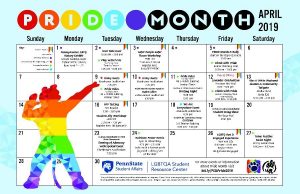They say that you never quite let go of what you loved in your teens. Granted, most college students are not at all far from their teen years even if they can feel like a lifetime ago. Nonetheless, nostalgia is a powerful tool that can re-affirm passion and goals.
There’s this notion that as individuals move into adulthood, they are obligated to shed the more “juvenile” interests of their past. Adult life means adult interests and occupations after all. However, it’s time we forgive ourselves for enjoying the books, movies and tv shows that we consumed in our teens.
Why the shame and stigma?
There’s a persistent stereotype that teenage girls are easily manipulated through marketing, more so than any other demographic. This idea implies that once a large number of young women are excited about something, it does not deserve its acclaim. Boy bands have long been ridiculed, mostly by those who consider themselves fans of “real” music.
“Beatlemania” describes the social phenomena occurring through the 1960s, when the English rock group quickly rose to fame. Now regarded as one of the greatest bands of all time, the Beatles were first heavily judged through their primarily female audience, and fans were written off as annoyances.
Although with time critics have gone back to re-frame their criticism, there are still those who stereotype and mock the interests of teenagers. In an article for GQ, Jonathan Heaf wrote “These women don’t care about the Rolling Stones. They don’t care about the meta-modernist cycle of cultural repetition. They don’t care about history. All these female fans care about is their immediate vociferous reverence: the beatification of St Harry, St Zayn, St Niall, St Louis and St Liam.”

Old leading to new
Despite the disdain that teenagers face and in turn, put onto fellow teens, nostalgia can lead to kinship, new interests and skills. We need to shed the shame and break the cycle of telling teenagers that their interests aren’t valid or worthwhile. Being part of a community can lead to an increased sense of security and confidence. Continuing to describe young people as hysterical when the same amount of energy can be seen in grown adults is ridiculous, and a clear example of hypocrisy in media.
Getting rid of the shame
It’s time to stop linking passion to hysteria, which impacts how we view social movements and change. The sexist etymology behind the word hysteria can be traced back to Ancient Greek when the word “hysterika” meant uterus. It can be seen again in the Victorian era when hysteria was used as a medical term to diagnose faintness, nervousness and lack of sexual appetite.

The American Psychiatric Association eradicated the word from their terminology in 1980, but for hundreds of years—hysteria was used to wrongly diagnose women as unstable and nervous, alienating them from society. Sound familiar?
By revisiting the interests of our younger selves, we can start the process of forgiving our own suppression of hobbies and pursuits.





